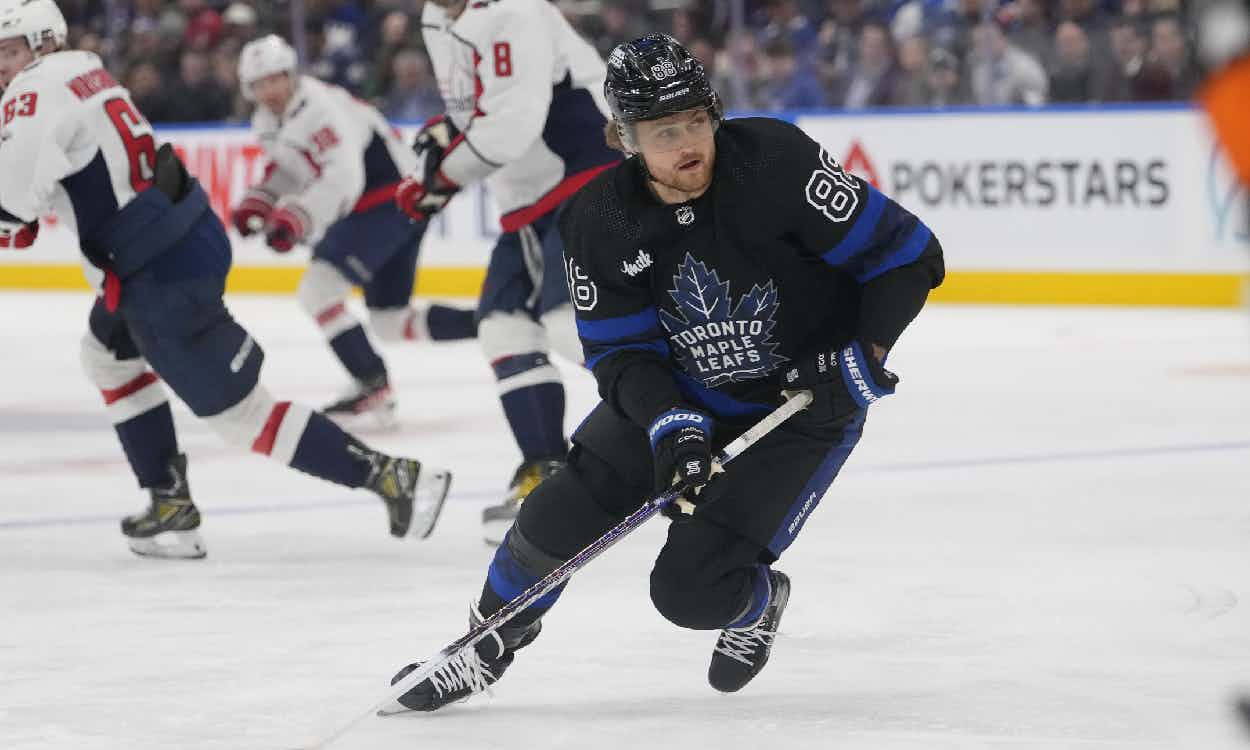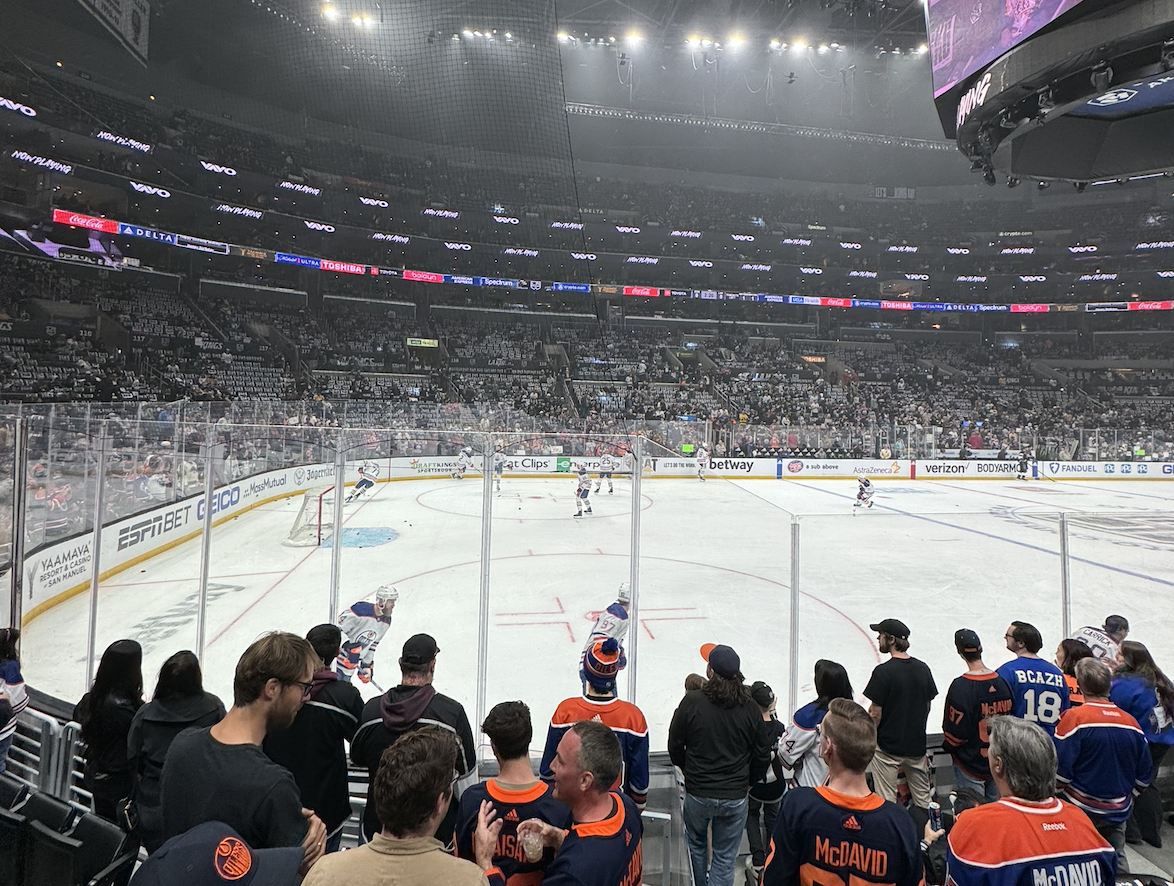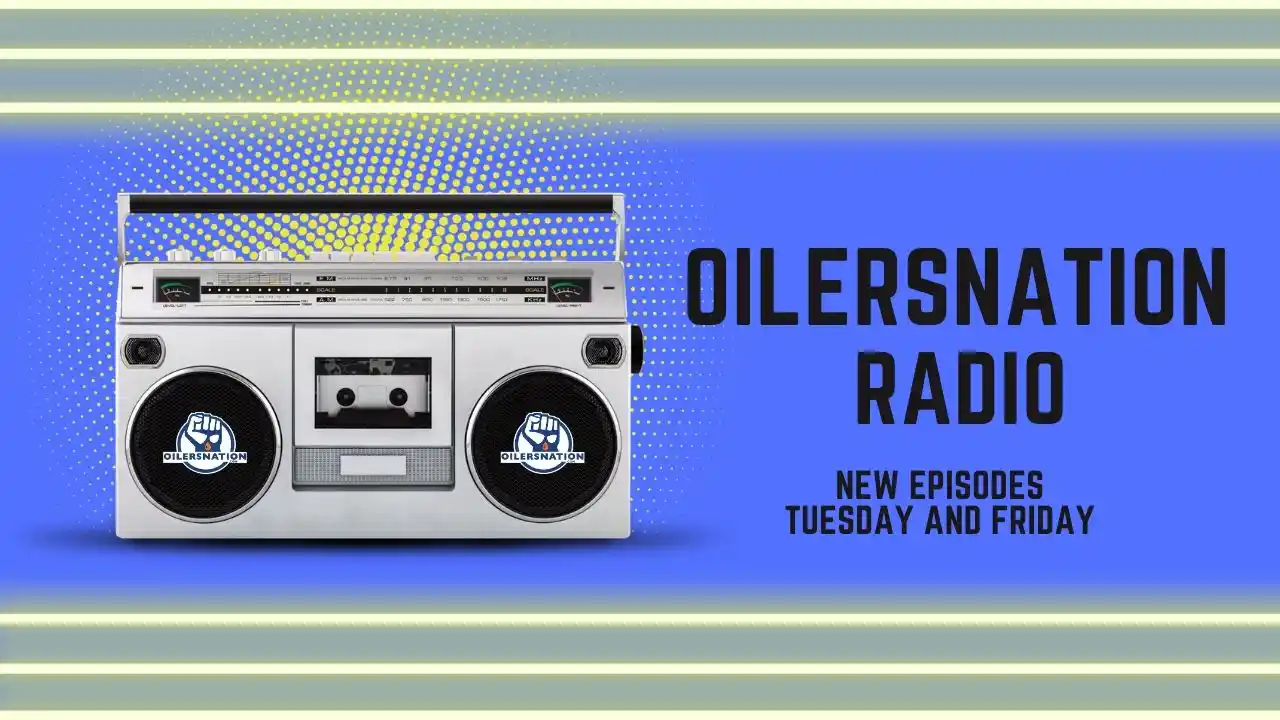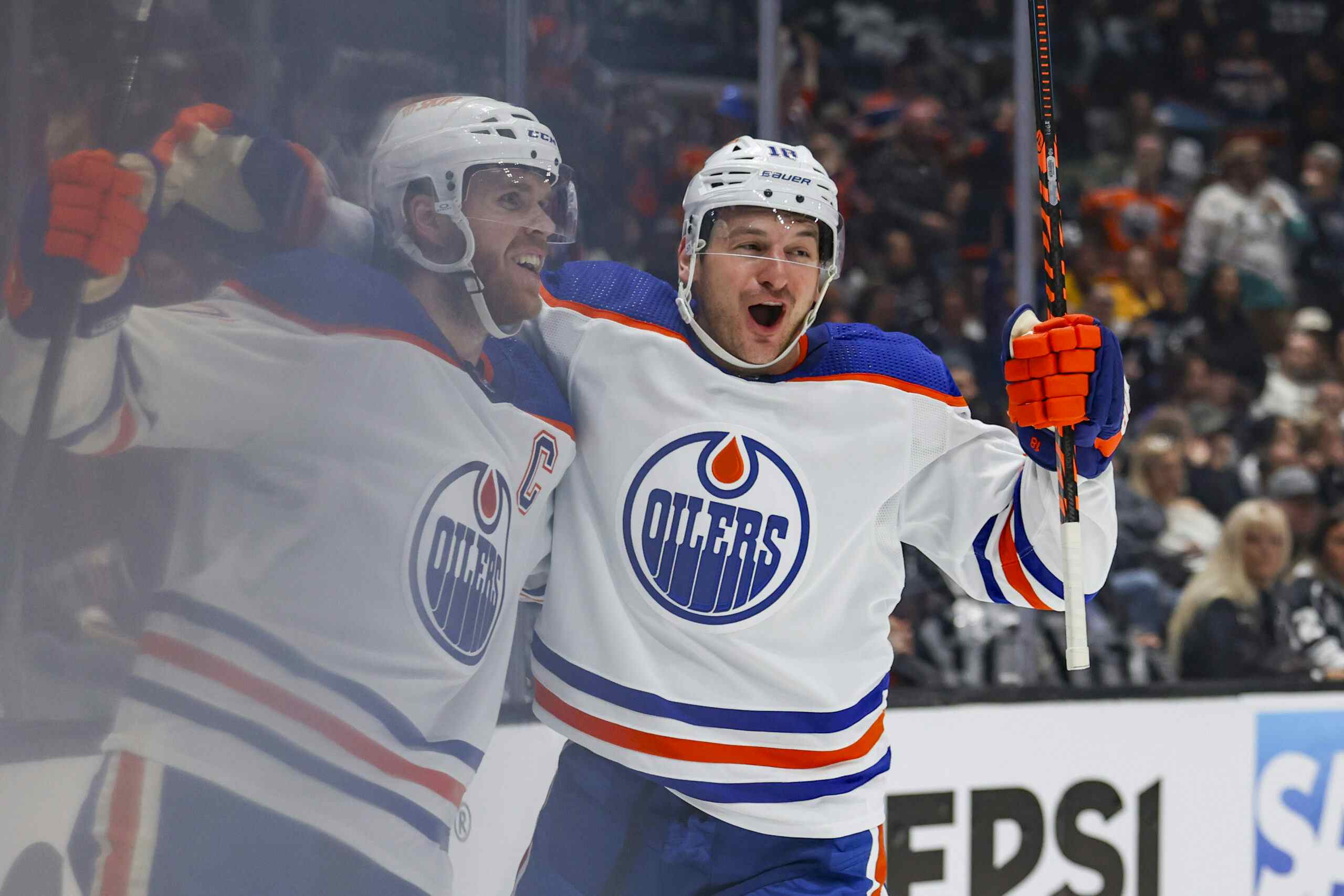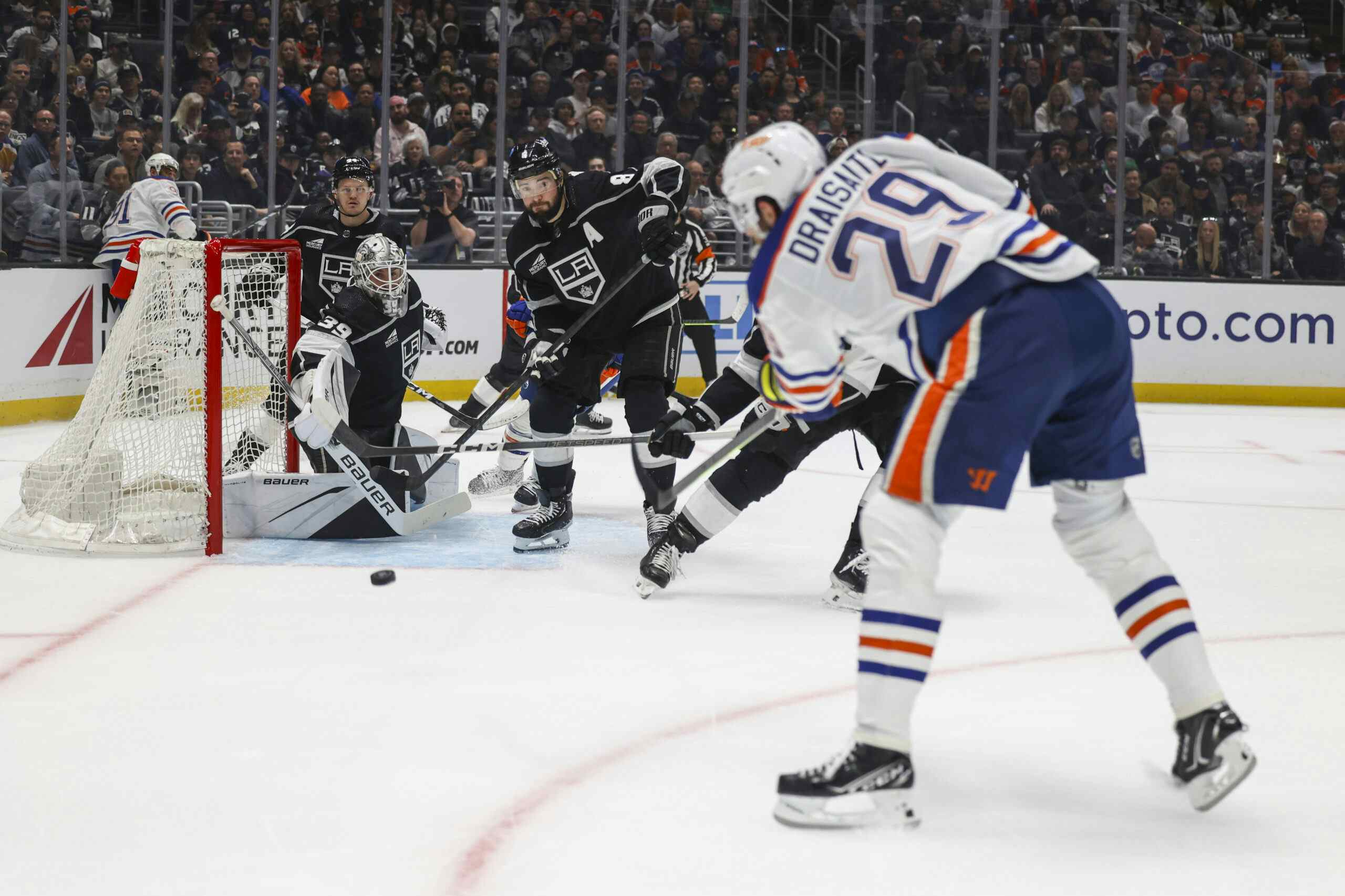The Good, the bad, the ugly and the Beastie Boys
By Wanye
15 years agoToday we feature the second part of Wanye’s four part series of the potential impact of the financial crisis on the NHL. Please note that these are the opinions of Viceroy Wanye von Gretz VII and as such are completely correct. He told us to say that. It’s his article. Whatever. —Spyn
Part two: The Good, the Bad and the ugly: Three potential scenarios facing the NHL
Last time we gave y’all an overview of some potential problems the NHL could face if this financial crisis gets any worse. Since we started writing this monster article, things have actually done just that, which is incredible considering things were already getting bad. While the fallout hasn’t been felt up here in Oil Country as of yet, the cloud is certainly spreading south of the border and into Eastern Canada. Will things stabilize? Will they go back to as they were four months ago? Are we mere seconds away from society melting down and facing some Mad Max at the Thunderdome post-apocalyptic scenario? If so where can we get a skin-tight leather suit?
Looking at the latest payroll numbers for the players signed by all 30 teams, the total salary committed is $1.508 billion USD, or 58.9% of last year’s revenues of $2.56 billion USD. That figure includes the LA Kings being considerably under the salary floor by a wide margin and a few teams being above the cap by a few million USD. If the players are due 56% of revenues, then total revenues must rise to $2.691 billion USD, or by 5%, for the players to get 100% of their contracted salaries.
Jim Kelley wrote an important piece on this matter on Oct 8. His revelations are certainly very telling:
“The big fear is that if the economy continues to fall, fans will simply have to make a choice as to not only how they pay their bills, but which bills actually get paid,” said an NHL insider who spoke to SI.com on the condition of anonymity. “If it gets to that point, entertainment costs—and let’s face it, we’re in the entertainment business—are going to take a hit. A lot of us are going to take a big hit.”
Sources tell SI.com that some eminently successful franchises have been feeling the pinch of late, including old-guard clubs such as Boston and the Southern expansion teams, notably Phoenix, Florida and Atlanta. Moreover, while luxury suites in the biggest markets (New York, Toronto, Chicago) are mostly sold for this season, the money that comes from beyond those sales, such as from in-building food, could fall substantially. In the smaller markets, if teams don’t sell out their general-public seats in the form of season tickets, the impact is expected to hit faster.
So let’s take a look at things, shall we? It’s really impossible to actually predict what is going to occur—both with the economy and with the NHL as a whole. Instead we have come up with three different scenarios and discuss the impact of each.
The Good scenario
In a good scenario, a serious recession is avoided and there is little long term damage suffered to NHL teams. Attendance dips in some markets but the majority of teams are able to meet their obligations. Years from now this period is referred to by NHL owners as “those years we lost some money and the Oilers won back to back to back Cups.”
In this scenario, a large portion of the fans redistribute themselves on the economic pecking order. Some season ticket holders split the tickets with someone else or go to a mini pack. More people go in on mini packs or just attend a handful of single games. Fans still spend money on their local franchise, though in reduced numbers.
The NHL can do many things to combat this. Relying on their owners to suck it up and shoulder a short-term loss is the easiest solution. But you can also do what the rappers refer to as “getting yo grind on”—circle the wagons and prepare to fight. Fans in the OilersNation may not realize that this is a scenario already faced by many NHL teams. As mentioned above, the LA Kings are sporting low attendance, a significantly lower payroll than most—no matter how much money they throw at ex-Oilers—and they are already doing all they can to get asses in seats as the “all you can eat night” promotion can attest. (Source: LAKings.com)
We hope that Bob MacKenzie doesn’t hear about that promotion. You know—for the Kings sake.
All in all, in a good scenario the recession does little more than contract revenues, cause a lower occupancy rate at games and makes a few billionaires take a larger tax write-off on their team than last year. There is no interruption in league activity and the game goes on—albeit at a lower rate of profitability.
The bad scenario
A bad economic scenario for the NHL would include a minor interruption in league activity that would force restructuring, a change in franchise ownership or some sort of bailout package to rescue a team unable to make payroll.
Think this is a crazy scenario? Look at the lengths the US government has had to go to bailout failed investment banks. These people have one function: make money—and they have failed monumentally. Would it be so crazy for NHL head office to put together a bailout package for the Nashville Predators if they couldn’t make payroll?
In the bad scenario, revenues decrease across the board and some franchises are forced to deal players in fire-sale trades in an effort to reduce expenses quickly. This could be when the Oilers are able to pull off the much-dreamed-about “Lecavalier for Pouliot, Schremp, Brule and Garon” trade. Financial reasons could once again restructure team line-ups—something not seen in a few years in the NHL. It’s kind of like how you used to be able to force trades in NHL 95—you just ram ‘em through regardless of how much (or little) hockey sense it makes.
If things get serious enough in a bad scenario, the ownership herd could get thinned out a bit and a couple of crappy teams could change owners or even move as their current owners decide enough is enough and look for an exit. This could already be in the cards in some NHL cities—notably Nashville. This actually isn’t the worst thing in the world for the NHL. Ownership and/or franchise relocation where a new qualified owner takes the helm could be good in the long run. If the League is forced to fire-sale teams, you could see the glorious return of Bruce McNall or Snoop Dogg buying the Ducks. Who knows what zany schemes will be cooked up to save the teams?
The Ugly Scenario
Ah the ugly scenario. It’s kind of like 1:58am in a bar—where you look around at the girls remaining thinking to yourself, “If THAT happens it will be just the worst thing ever.”
But instead of Gertie 230, we’re talking about the economy as it enters a long and painful recession similar to or worse than that of the Great Depression. The likelihood of this occurring is low but certainly not zero. Without writing you a Communist manifesto of what this would look like, just think of it as “that time you will bring up around the dinner table when you are a senior citizen, to scare your grandkids into eating all their vegetables.”
In this scenario a huge segment of NHL fans can no longer afford to attend hockey games, purchase merchandise, get pay-per-view or even watch on TV. This could be a scenario where large newspapers close and major media outlets could fail. This has happened before and there’s no system in place to prevent it from happening again. Owners could themselves face bankruptcy and teams could simply default on their contractual obligations to players and cease operations altogether.
In this scenario the NHL would be forced to take drastic action. Think of that potted plant you’ve ignored for a good year. All dying and nasty, you were forced to prune it back to a stump in the hope that it would return to form and not die altogether. The NHL could be forced to take this type of action if things got really bad. This could include steps like scrapping revenue sharing, tossing the CBA altogether and shutting down any team that is in grave danger of folding and cannot find a new ownership group.
This isn’t impossible either. If the NHLPA truly saw an environment where a large portion of the teams could fail if the CBA wasn’t tossed out the window they would be quick to preserve as many jobs for their members as they could. All the saber rattling and posturing goes out the window in the ugly scenario and the plant is hacked down to the parts that haven’t died already.
It remains to be seen which one of these scenarios could occur, but it’s an important topic to keep tucked in the back of your mind as we watch the events unfold. Fortunately the Nation pays all of its writers in old buttons and old newspapers so we will be with you till the very end.
WG4
Recent articles from Wanye





